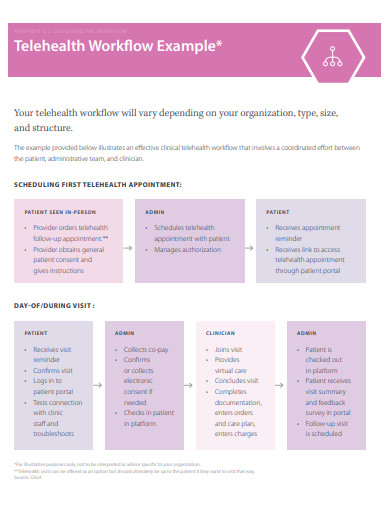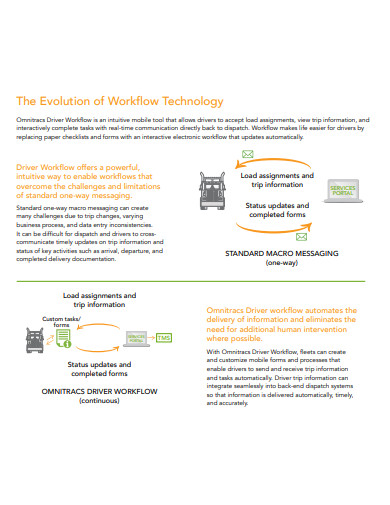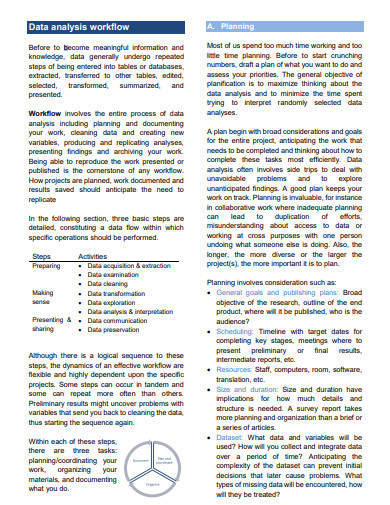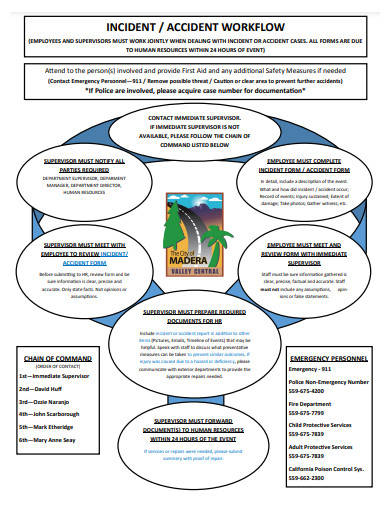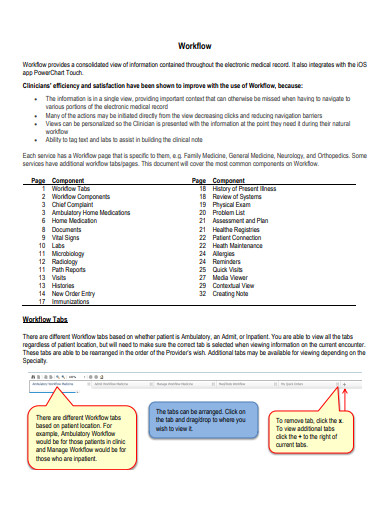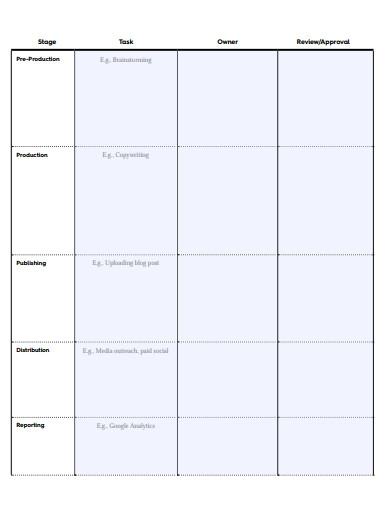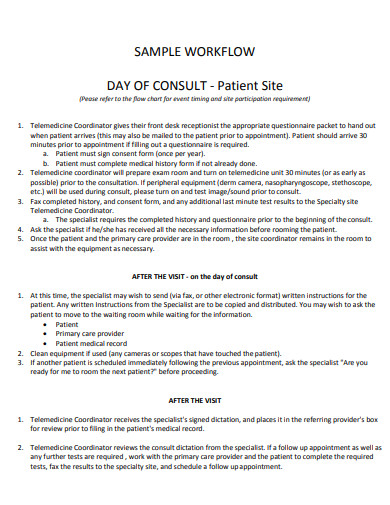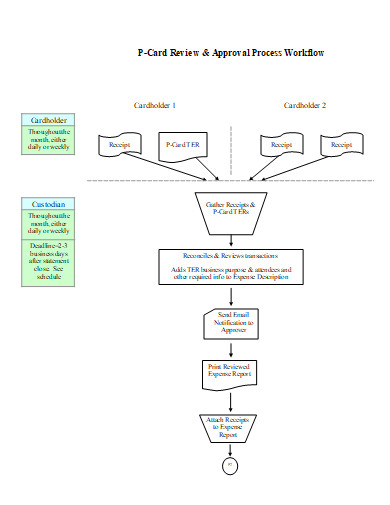Workflows are the methods by which individuals perform tasks, and they can be represented in a diagram or checklist as a set of actions that must be completed in a specific order. Consider it as work flowing from one stage to the next, whether it’s via a colleague, a tool, or another method. A workflow can be completed by one person (for example, writing, editing, and posting a blog post) or by numerous persons (for example, writing, editing, and publishing a blog post) (like invoicing a client). Workflows are the methods by which you complete tasks. The process is the order in which tasks are completed from beginning to end.
10+ Workflow Samples
A workflow is a set of stated processes that run from the beginning to the end of a working process in order to complete a task. As a result, the task in question transforms from unfinished to finished, or from raw to processed. Businesses and other organizations can use well-defined workflows to improve their operations, increase work efficiency, and ensure top quality across the board.
1. Workflow Diagram
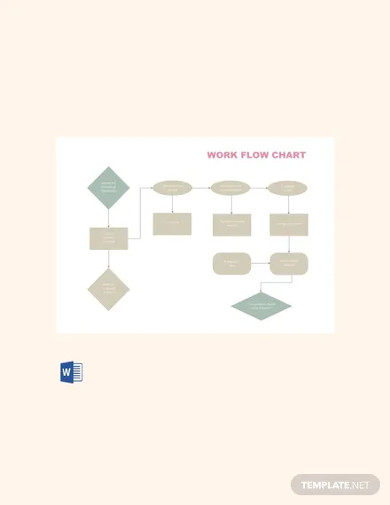
2. Workflow Chart Template
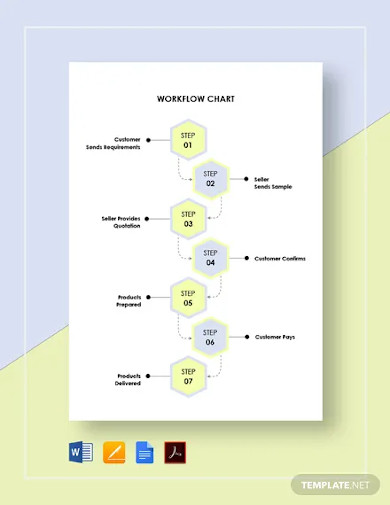
3. Workflow Process Chart
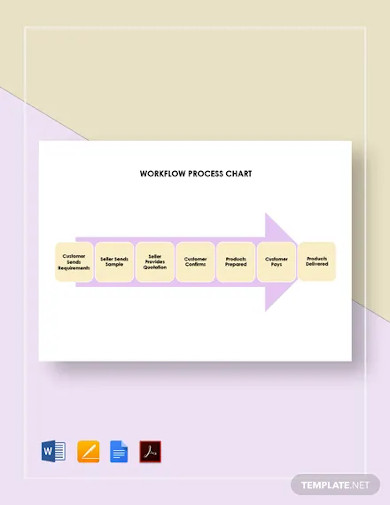
4. Telehealth Workflow
5. Evolution of Workflow Technology
6. Data Analysis Workflow
7. Incident or Accident Workflow
8. Sample Workflow
9. Workflow and Governance
10. Basic Workflow
11. Printable Workflow Chart
Workflow Types
Workflows take place all throughout the office. Workflows arise whenever data goes from one activity to another, and they can be very structured or quite unstructured.
- Process workflow – When a series of jobs is predictable and repeatable, it is called a process workflow. This implies you know exactly which path an item should follow before it enters the pipeline. Workflows for business processes are designed to manage an endless number of things. A purchase requisition approval workflow is an example. The workflow is set with few alterations as soon as it starts, and you can handle any number of objects in a single workflow.
- Case workflow – You don’t know the path expected to accomplish the item at the start of a case workflow. As more data is acquired, the way becomes clearer. Support requests and insurance claims are two examples of possible scenarios. It’s not evident how these objects will be treated straight away; the path will become clear after some research. Case workflows, like process workflows, may handle any number of things, but they rely on a human or an intelligent bot to choose the best path.
- Project workflow – Projects, like processes, follow a predetermined path, although there may be more flexibility along the way. Consider launching a fresh edition of your website. You can accurately forecast the order in which tasks must be completed to complete the project. Project workflow, on the other hand, is only useful for one thing. Another website rollout could take a long time, and it is unlikely to follow the same path.
The majority of internet materials will only refer to workflows in the context of process workflow, but the other two are equally important to discuss because they encompass the majority of office work.
FAQs
What is not a workflow?
You will not have a workflow if information isn’t moving. This isn’t a workflow, but task management if you’re managing a list of unrelated chores (walk the dog, go to the supermarket, pick up the dry cleaning). To be considered a workflow, the tasks must be linked together in some way to form a larger whole.
How to spot workflows?
Workflows can be found in a variety of areas. A workflow is created when you have a large number of emails that you unconsciously transfer down an unseen chain. A workflow is when you print the same form over and over again. It’s a workflow if you find yourself using a spreadsheet to organize dynamic data. A workflow is when your work is slowed down because someone else isn’t executing their job properly.
Workflows in the workplace are frequently significantly more intricate. Employee onboarding, for example, could entail many meetings, reports, duties, and departments. They must be appropriately monitored, maintained, and optimized at this level to ensure that they are as efficient as possible.
Related Posts
Retirement Speech Samples & Templates
Weekly Schedule Samples & Templates
Contractual Agreement Samples & Templates
FREE 9+ Amazing Sample Church Bulletin Templates in PSD | PDF
Sample Business Card Templates
Sample Cashier Job Descriptions
Questionnaire Samples
FREE 10+ Sample HR Resource Templates in PDF
FREE 49+ Sample Job Descriptions in PDF | MS Word
FREE 23+ Sample Event Calendar Templates in PDF | MS Word | Google Docs | Apple Pages
Company Profile Samples
FREE 10+ Leadership Report Samples [ Development, Training, Camp ]
FREE 24+ Sample Payment Schedules in PDF | MS Word
FREE 10+ Return to Work Action Plan Samples in PDF | DOC
Autobiography Samples & Templates

